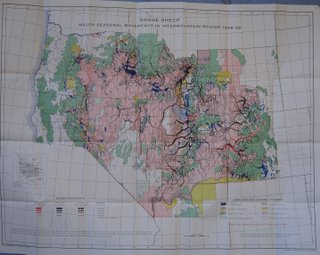Yesterday I went to Washington to testify before the Senate Committee on the Judiciary's Subcommittee on Intellectual Property. The
hearing concerned orphan works -- works whose copyright holder(s) cannot be located -- and the importance of resolving their status so that these works can be reproduced and reused. Present were Senators Orrin Hatch and Patrick Leahy, plus quite a number of interesting folks: Gigi Sohn from
Public Knowledge, filmmaker
June Cross,
Prue Adler of the Association of Research Libraries,
Allan Adler of the Association of American Publishers, to name but a few.
The witnesses' prepared statements mostly focused on the Copyright Office's recent
study of the problems posed by orphan works. When the Office called for public comments last year, it received over 800, an unusually large response in a copyright proceeding. There's significant consensus around addressing the orphan works situation and opening these works to some sort of reuse, if means and procedures can be crafted to protect the rights of copyright holders.
What's it like testifying before a congressional committee? The room, in the Dirksen Senate Office Building, seats about 60, and is mostly full. Witnesses sit at a long table covered in green felt, accessorized with a small bottle of water, a glass, two U.S. Senate coasters, a U.S. Senate notepad and pencil, and a live microphone that extends into their faces. Behind the witnesses, the first row of seats is reserved for their counsel, who can lean forward, pass notes to them and prompt them as needed. I have no counsel with me. In front of the witness table is a semicircular pit in which a lone photographer (this is not one of the hearings mobbed by a gaggle of photographers) sits on the floor and shoots pictures of witnesses. Also in the pit is a very large countdown timer that in our case counted down from five minutes, with a yellow light coming on when 30 seconds remain and a red light at zero. To the right sits a reporter with a recording machine. Occasionally she speaks into the recorder using a voice-muffling microphone in what looks remarkably like an oxygen mask, probably to make audible notes or identify who is speaking. In front of the pit is a semicircular podium on a dais, wrapping around long enough to accommodate a full committee. This time just two senators are in attendance, committee chair Hatch and ranking Democrat Leahy. Hatch enters the room and shakes hands with each witness before ascending to the podium. Leahy arrives a moment later with his own camera and shoots pictures of the witnesses and the room. In his remarks, he alludes to his photography several times and speaks about the difficulty of controlling the dissemination of images that make it onto the net.
In a friendly and welcoming manner, Hatch posed the problem and described the process by which it is being addressed (link to all remarks
here). Each witness then spoke for five minutes, after which the Senators asked questions. I spoke about the
Internet Archive's project to scan the contents of great libraries, our partnership with the
Open Content Alliance, our interest in making orphaned books available online,
Prelinger Archives and its work with orphan films, and the importance of clarifying the situation regarding orphan films so that films can be preserved before they decompose.
Quite an interesting experience. Thanks to the staffers who made it happen, especially Kathryn Hutchinson. -- RP




